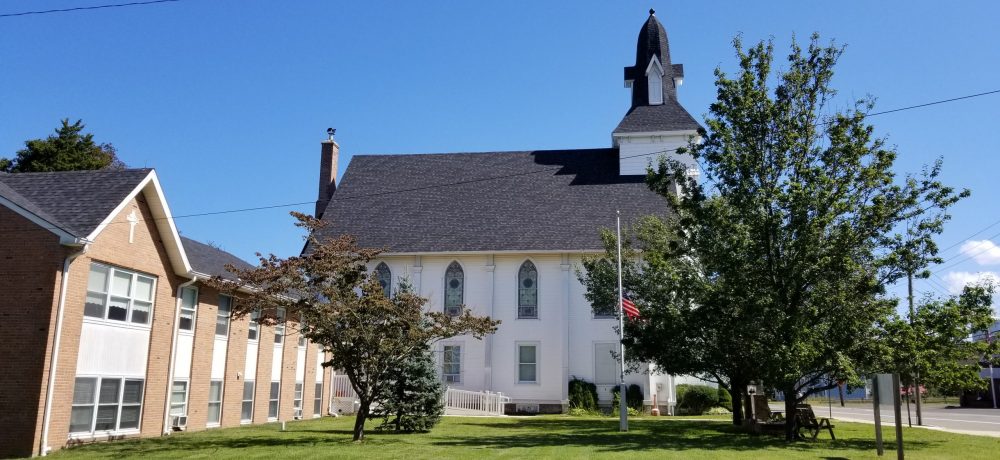Today Pastor Choi talks about another lesson from Abram: generosity (the quality of being kind and generous to others). When Abram’s herdsmen and those of Lot (Abram’s nephew) had the strife among them, Abram resolved the conflict by pursuing peace in the family. He was also generous to his nephew by giving the first choice to choose whatever he wanted. The lesson is that when we treat others with generosity, God rewards us for our generosity.
Following is a summary of the sermon:
Generosity
Genesis 13:1-18 New American Standard Bible (NASB)
13 So Abram went up from Egypt to the Negev, he and his wife and all that belonged to him, and Lot with him.
2 Now Abram was very rich in livestock, in silver and in gold. 3 He went on his journeys from the Negev as far as Bethel, to the place where his tent had been at the beginning, between Bethel and Ai, 4 to the place of the altar which he had made there formerly; and there Abram called on the name of the Lord. 5 Now Lot, who went with Abram, also had flocks and herds and tents. 6 And the land could not sustain them while dwelling together, for their possessions were so great that they were not able to remain together. 7 And there was strife between the herdsmen of Abram’s livestock and the herdsmen of Lot’s livestock. Now the Canaanite and the Perizzite were dwelling then in the land.
8 So Abram said to Lot, “Please let there be no strife between you and me, nor between my herdsmen and your herdsmen, for we are brothers. 9 Is not the whole land before you? Please separate from me; if to the left, then I will go to the right; or if to the right, then I will go to the left.” 10 Lot lifted up his eyes and saw all the valley of the Jordan, that it was well watered everywhere—this was before the Lord destroyed Sodom and Gomorrah—like the garden of the Lord, like the land of Egypt as you go to Zoar. 11 So Lot chose for himself all the valley of the Jordan, and Lot journeyed eastward. Thus they separated from each other. 12 Abram settled in the land of Canaan, while Lot settled in the cities of the valley, and moved his tents as far as Sodom. 13 Now the men of Sodom were wicked exceedingly and sinners against the Lord.
14 The Lord said to Abram, after Lot had separated from him, “Now lift up your eyes and look from the place where you are, northward and southward and eastward and westward; 15 for all the land which you see, I will give it to you and to your descendants forever. 16 I will make your descendants as the dust of the earth, so that if anyone can number the dust of the earth, then your descendants can also be numbered. 17 Arise, walk about the land through its length and breadth; for I will give it to you.” 18 Then Abram moved his tent and came and dwelt by the oaks of Mamre, which are in Hebron, and there he built an altar to the Lord.
Introduction
Two weeks ago, I spoke about Abram’s distrust and lies. He lied twice calling his wife sister. He did so, because he was afraid of losing his life. It’s a lesson for us too. When it comes down to protection, God is our shield (Genesis 15:1). Our best protection in times of need is God, not our own schemes. It is a far better choice to call on God trusting in Him and in His mighty power than to rely on our own wisdom and might when the chips are down.
Today’s text is the continuation of Abram’s journey. This time it brings us another lesson: generosity (the quality of being kind and generous).
Contents:
Let me recap today’s story in my own words: after God intervened for Abram in Egypt, Pharaoh returned Sarai to her husband and ordered them to leave the area. So, he headed out for the land of Canaan—the wilderness. Abram traveled together with his nephew Lot. In those days, it was an advantage to travel together, especially if you were a foreigner. The greater in number, the better protection it brought. Abram and Lot both were shepherds, both were wealthy, and both had many hired herdsmen to take care of thousands of sheep and cattle.
As you can imagine, to feed and water the flock would be a huge challenge. Mind you that in the wilderness you don’t have a nice river or even a small lake that provides a steady supply of water. Therefore, you solely rely on a well. By the way, no one shares his well with you either, so you have to dig one for yourself. Furthermore, digging a well was not a small task. “Many of the hand dug wells in the ancient Holy Land exceeded 100′ in depth.” (http://ptl2010.com/2010/12/27/the-tale-of-the-tel-wells-in-ancient-palestine-2/) It involved trials and errors. It took many workers and days to dig one well that was good.
Once a well is dug, you would like to stay there as long as you could until either water or grass, whichever first runs out. That’s what they did. They shared the land and the well which seemed at first sufficient for the both. Then, one day the strife broke out between the herdsmen of Abram and those of Lot. Someone must have started claiming they had the first right to the well and the land. The other party said no way. Their verbal quarrel got noisy. They yelled at each other. Some rough ones might have had a fist fight. Luckily, no one was killed. I believe the same strife very likely happened more than once (although the Bible doesn’t say how many times).
Of course, the herdsmen reported to their bosses respectively. Each side complained and blamed the other side for the strife: “We were absolutely right and the other guys were absolutely wrong.” Sound familiar?
Finally, all these matters came to the boss: Abram. That’s where the buck stopped.
How did he handle the whole situation? How would you handle the situation if you were him? Let me tell you what I believe he could have done: He could’ve chastised his nephew and his herdsmen for the strife. He could’ve reminded Lot who was in charge in his household. After all, he was his uncle. He also could’ve called for a committee meeting to come up with the feeding and watering schedule for both sides. He did none of the above.
Rather, he called for a one-on-one meeting with his nephew. He said to Lot, “Look! Please let there be no strife between you and me, nor between my herdsmen and your herdsmen, for we are brothers. 9 Is not the whole land before you? Please separate from me; if to the left, then I will go to the right; or if to the right, then I will go to the left.”
I love Abram’s approach here to resolve any conflict between him and his nephew. Call for a one-on-one meeting. No mediators. Just you and me. We are brothers. The same approach is also recommended by Jesus our Lord. In Matthew 18:15, He said, 15 “If your brother sins, go and show him his fault in private; if he listens to you, you have won your brother.”
Abram said to Lot: Hey, look. We are family. Let’s have peace between us. Here, he acknowledged that peace is the most important thing among his family members. Not just between uncle and nephew, but even among their employees. He was conscientious in setting a good example before the world (see verse 7: the Canaanite and Perizzite). He was determined not to allow anything to come between him and Lot. I believe many families today can use this approach. E.g. Have you ever seen some families fight over an inheritance taking each other to the court? Perhaps that’s the way some people in the world settle their disputes, but not for God’s people. We are peace makers. We seek peace and pursue it among us (Psalm 34:14).
I also like Abram’s perspective on the way we gain material things. “After you!” approach. He was kind and cool giving the first choice to his nephew: Look, you go first. Choose whatever suits your needs. If you go to the left, I will go to the right. If to the right, then I will go to the left. Don’t you love his solution? I do. E.g. If we yield to each other in driving, how much less stressed out would all of us be?
I would call Abram’s attitude generosity: let others have the first choice. Such an attitude only comes from a mature person who has a room in his/her heart for others. Some of us may be afraid that by being generous to others would make us a loser. Not really. On the contrary, God rewards us for our generosity. Indeed, that’s what God did for Abram. Right after Lot left for his choice land, the fertile, green, plenty of water land, Abram ended up staying in the same place–very harsh, arid, and tough to live with his livestock. However, in the end it was Abram who was blessed. He didn’t become a loser. This is how it happened. God appeared to him and assured that He would give him forever wherever his feet touched as a permanent inheritance for his descendants. To make a long story short, do you know what happened to Lot? He lost everything despite the favorable environments he went after. Abram and his possessions, however, multiplied despite the harsh conditions. That reminds me that true blessings always stem from God and stay with God. God is the source of our blessings. He Himself is our blessing. Here’s another spiritual secret. You don’t choose blessings over God. You choose God instead and blessings will follow you. Here’s one good prayer for you: Stop praying “Lord, bless me in what I do.” Instead, start praying “Lord, help me to do what You bless.” You will see a huge difference in your life.
E.g. Sundar Singh, a Christian man in India in the 20th century, once was on his way to India from Tibet, traveling through a high mountain in freezing weather in the Himalayas. He was traveling together with a friend. As they approached the next lodge, which was about a couple of miles away, they found a stranger on the ground buried in snow half frozen and dying. Singh suggested to his friend to take the man with them. The friend refused saying, “Are you out of mind? We cannot afford to carry another man in this cold weather!” Singh insisted. His friend said no and went ahead alone. Singh took the man on his back. The weight of the man on his back made his steps extra heavy and slow. About a mile later, Singh found another man on the ground—it was his friend who went ahead and collapsed to death. Singh and the other man, however, made to the next house, both alive. Later Singh realized that the heavy weight of the man on his back provided the extra heat that kept them both warm. The lesson: Singh chose what God blessed—help others–and survived. His friend didn’t.
Closing:
Let’s be generous to others and God will reward us for our generosity. Amen.


